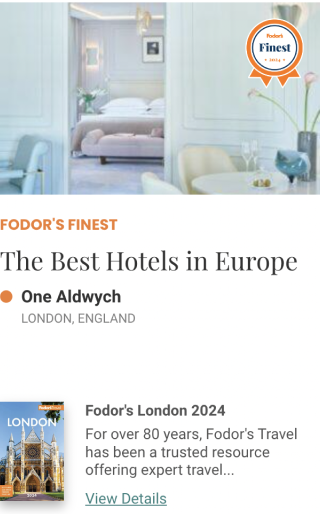
Home » Destinations
Munich
Share:
The Travel’s Five
Italy, where each bite of pasta is a celebration of culinary genius and every cobblestone street whispers stories of bygone eras. Italy, a country of contrasts where the dynamic energy of modern life blends with the timeless grandeur of Renaissance architecture, is tucked away in the heart of Europe. Italy is home to more than 60 million people and is a colorful tapestry of different customs and ways of life.
Italy is the 5th most visited nation in the world, drawing millions of tourists to its recognizable cities and magnificent scenery annually. Since its unification in 1861, Italy has come to be associated with classic beauty, Renaissance works of art, and internationally recognized food.
Italy’s varied landscapes provide a feast for the senses at every turn, from the sun-kissed Amalfi Coast beaches to the snow-capped Alps summits. Italy never fails to enchant and inspire, whether you’re strolling through the historic alleys of Rome, indulging in gelato in Florence, or taking a leisurely cruise along the lovely canals of Venice.
Visit Rome’s Colosseum and Roman Forum
Take a trip back in time and admire the magnificent buildings of ancient Rome. Stroll around the ruins of the Roman Forum, the site of the political and social life of the city, and imagine the gladiatorial fights that once took place inside its walls.
Take a Wine Tour in Tuscany:
Take a tour of Tuscany’s scenic vineyards while tasting well-known wines like Chianti and Brunello di Montalcino. Savor the aromas of Italy’s most adored wine region, visit quaint wineries tucked away in the undulating hills, and interact with passionate winemakers.
Take a Ride Along Venice’s Canals:
Take a traditional gondola ride across Venice’s complicated network of canals to truly appreciate its breathtaking splendor. While your gondolier serenades you with Italian tunes, take in the elaborate palaces, ancient bridges, and undiscovered areas of this remarkable city.
Walk the Coastal Trail of the Cinque Terre:
Put on your hiking boots and set out on an amazing journey around the Cinque Terre’s untamed coastline. Hike among terraced vineyards, through pastel-colored villages perched on cliffs, and take in breathtaking views of the Ligurian Sea’s turquoise seas.
Admire Florence’s Architecture and Art:
Take in Florence’s Renaissance beauty, which is home to some of the most recognizable artwork and buildings in the entire world. See works of art by Michelangelo, Leonardo da Vinci, and Botticelli in the Uffizi Gallery. A trip to the top of the Duomo will provide you with sweeping views of the city below.
Munich, frequently alluded to as München, is a city that easily mixes custom and innovation. As the priciest city in Germany, it offers guests a remarkable encounter that requests to both the conventional and the contemporary. Notwithstanding being the home of Oktoberfest, a 200-year-old celebration known for its party and extravagance, Munich is likewise a centre for distributing and innovation in Europe. Settled close to the Bavarian Alps and the River Isar, the city is an embroidery of regular excellence and metropolitan complexity, with designer shops and smooth BMWs taking the roads to notable milestones.
Outlined by the snow-cleaned Bavarian Alps, Munich mixes history with contemporary style as capital of Germany’s southernmost state. Locals zip by on bicycles as the sweet scent of pretzels wafts from old-fashioned bakeries while modern high-rises glitter in the distance. Once home to medieval rulers and Renaissance princes, today Munich intertwines imperial palaces with cutting-edge art museums, rowdy beer halls with sleek wine bars. Locals celebrate age-old customs during Oktoberfest while welcoming newcomers reinventing historic buildings into minimalist boutiques and hypermodern restaurants. Munich rewards those going beyond surface images of Dirndls and Lederhosen to embrace juxtapositions making this global hub vibrantly unique.
Beyond luxury landmarks, creative concept hotels beckon across Munich blending historic grace with contemporary styling. Discover some of our favourites matching imaginative accommodations with authentic service and vibrant neighbourhoods.
Louis Hotel
Sleek Tokyo-style minimalism defines the Louis Hotel, whose Viktualienmarkt location affords views over the picturesque farmer’s market. Guests admire the Japanese-inspired rooms showcasing artwork from the Land of the Rising Sun. Dinner at the exceptional Japanese onsite restaurant Emiko makes for a singular experience without leaving the hotel.
Roomers Munich, Autograph Collection
This designer property surprises with slick interiors behind its historic facade facing the tranquil Old Botanical Gardens. The lively onsite Izakaya Kitchen and Bar draws a smart evening crowd. Visitors love the Roomers’ central location and modern aesthetic for a stylish home base when exploring Munich’s dynamism.
BEYOND by Geisel
Housed in a traditional apartment building, this intimate boutique property offers just 19 elegant rooms adorned in soothing natural tones. Guests especially appreciate the shared living spaces which make BEYOND feel like home. Its central Marienplatz location provides walking access to Munich’s historic heart just steps from the front door.
Platzl Hotel
This boutique property seamlessly blends old and new across its spacious public spaces. Original centuries-old wooden beams complement hyper-contemporary light fixtures and sleek grey slate tiles. Guests particularly love dining at the exceptional onsite Pfistermühle restaurant set within a former 16th-century flour mill exuding romantic atmosphere.
English Garden (Englischer Garten)
Made in 1789, the Englischer Garten offers a verdant shelter from the city. Visitors lounge on the grass while joggers circle glassy lakes, all encircled by the distant Alps. Locals enjoy the landscape’s contrasts: joggers loop endlessly past babbling streams while sunbathers bare all on secluded lawns. As evenings stretch golden, enormous beer gardens like Chinesischer Turm fill up for family-style dinners and helles beer. Visitors recommend renting bikes or rowboats and stopping for a mug at one of the sprawling biergartens interspersed throughout the park.
Church of Our Lady (Frauenkirche)
The Frauenkirche’s twin pinnacles, looking like beer steins, make this fifteenth century house of God a notable city milestone. Badly damaged in World War II, the restored gothic church remains a recognisable symbol of Munich. Visitors tour the cathedral and worship hall for free or pay a small fee to climb the observation tower for stunning views, located near the central Marienplatz.
Deutsches Museum
This world-class science and technology museum spans six floors of exhibits exploring everything from mining to nanotechnology to musical instruments. Families appreciate the hands-on displays in the children’s KinderReich section. Recent tourists suggest distributing a portion of a day to completely investigate the different interactive galleries and shows covering topics like genetics, astronomy, and physics.
Viktualienmarkt
Dating from 1807, Viktualienmarkt allures guests with lines of splendidly shaded stalls selling fresh blossoms, desserts, hotdogs, and produce. Investigate the crowded paths, test locale strengths directly from the sellers, or unwind at a biergarten table with a noon beer. Locals call out weekly specials in charming Bavarian accents while visitors sample regional delicacies. Explore the bustling lanes, sample local specialties straight from the vendors, or relax at a biergarten table with an afternoon beer. Many restaurants source ingredients from trusted vendors, so meals also offer a taste of this beloved farmer’s market in the heart of the city.
Old Picture Gallery
This eminent expressive arts gallery houses a broad assortment of European master works from the 14th to 18th century. Tourists appreciate notable canvases by Rubens, Rembrandt, Raffaello, Da Vinci and different luminaries covering 25 galleries. Highlights include the Bavarian State Painting Collections and exhibits dedicated to the influential Wittelsbach royal family. Admission costs just €4, a bargain to experience hundreds of years of creative genius.
Biergarten at the Chinese Tower
In the heart of the English Garden, the Chinesischer Turm beer garden has been a beloved institution since its royal debut in 1791. Today locals and visitors gather beneath the ornate 25-meter tower to fill massive 1-liter steins from an onsite brewery. Hearty Bavarian foods like schweinshaxe, obatzda, and breze pretzels fuel hours of drinking on pine benches amid chestnut trees, the atmosphere lively with groups toasting another idyllic Munich summer night.
Munich’s ascendant dining culture complements old world traditions with vibrant cosmopolitan energy. Creative newcomers are transforming historic buildings into sleek eateries spotlighting regional ingredients in globally inspired dishes. Yet even forward-thinking kitchens rely on trusted providers like Viktualienmarkt for seasonal ingredients, ensuring modern flavour combinations still reflect authentic Bavarian soul. Here we highlight some local favourites to experience Munich’s culinary revolution.
Matsuhisa
Nobu Matsuhisa brings world-famous Japanese fusion to Munich at his elegant dining room inside the five-star Mandarian Oriental hotel. Reservations often book up weeks in advance to experience Nobu’s signature black cod with miso, tender Wagyu beef skewers, and tempura-fried specialty maki rolls, all paired with exceptional sakes and theatrical service. With just 32 seats surrounding the sushi counter, an evening here makes for a truly exceptional night out.
Restaurant Broeding
For over 30 years Broeding has pioneered Munich’s fine dining landscape relying on ethical relationships with regional farmers, foragers, and hunters. Head chef Manuel Reheis crafts a daily six-course menu showcasing humble local ingredients in creative preparations. Make sure to save room for the epic cheese course, an ever-changing selection from award-winning Allgäu affineur Thomas Breckle. Knowledgeable sommeliers complement the stellar cuisine with Austrian and German growths little known beyond their home regions.
Mamma Bao
Industrial-chic Mama Bao specialises in authentic hand-pulled Chinese noodles made fresh to order by chefs from Northern China. Owned by Munich native Ying Xu, the cramped shop often has queues snaking outside as loyal regulars wait to snag one of just nine counter seats. Come early to try favourites like the signature beef bowl with tomato and egg or Shanghai chicken bao buns, slurping noodles beside students and professionals unified through appreciation of exceptional Asian soul food.
Wirtshaus Eder
With its exposed brick walls, suspended ceiling vines, and classic wooden bar, this Westend pub exudes old-school atmosphere. But flip the beer list to discover Germany’s new wave of craft brews from innovative local brewers like Tilmans Biere and Hofbrau. Manager Johann Eder also stocks cult spirits like award-winning Bavarian single malt whisky, Slyrs. Pair the stellar drinks menu with hearty Bavarian bar snacks or daily specials made from scratch in the kitchen. By day a coffeehouse, after dark Eder becomes clubhouse for beer and whiskey devotees.
Mun Restaurant
Descend into a Haidhausen basement to discover this sleek den for Asian fusion lovers. Korean owner-chef Mun Kim trained under prominent Japanese chef Makoto Okuwa prior to opening his eponymous restaurant focusing on marrying French technique with Far Eastern flavours. The omakase sushi counter prepares delicate pieces of nigiri to order, but carnivores swear by Mun’s tender Korean-style rib eye paired with kimchi fried rice and Julia Child’s favourite potatoes. Request the vegan tasting menu 48 hours in advance for a special meat-free experience crafted just for you.
With insider knowledge, visitors can dig deeper into Munich’s dimensions. Avoid lengthy waits at in-demand restaurants by reserving weeks in advance. Carry cash for efficiency in smaller establishments still adjusting to card reliance. Purchase public transit day passes and consider a MunichCard granting free or discounted admission to over 80 attractions.
While English abounds downtown, basic German phrases aid interactions, especially in local-focused spaces. Address strangers formally as “Sie” rather than informal “du.” Note that red lights often signify closed establishments. In raucous beer halls, keep one hand on your beer stein to avoid losing your place when stepping away.
Most importantly, embrace the Bavarian “live and let live” attitude, which encourages quirky behaviour. Join nude sunbathers in the English Garden without judgement. Sip evening cocktails barefoot in a biergarten after an afternoon rainstorm. Initiate discussion with outsiders while sharing a table, utilising broken language and behaviour to figure out some mutual interest. Allow yourself to be cleared up in the rhythms of a city where age-old customs blend consistently with present day style and development. Despite season or event, Munich stands prepared to captivate guests open to all its layered aspects.
Best Chance to Visit Munich
The months from March to May are great for visiting Munich, as the hordes of fall have disseminated, and the pinnacle summer season hasn’t yet shown up. On the off chance that if you are wanting to encounter Oktoberfest, be ready for cooler temperatures, as the celebration ordinarily happens in the fall. Summers are gentle, with temperatures ideal for partaking in the city’s numerous brew gardens. Winters, aside from the bubbly long periods of December and January, are viewed as the low season in Munich.
What You Want to Be Aware of
German beer is known for its higher liquor content contrasted with American brews, so guests ought to find a steady speed, particularly during Oktoberfest. Discussing Oktoberfest, beer is normally sold in litre amounts during the celebration. Furthermore, Munich is a costly city, with a significant expense of living because of its magnificence and nearness to the Alps. While numerous local people communicate in English, it is amiable to begin discussions with “Sprechen Sie Englisch?”
How to Save Money
To set aside savings, consider carrying your own food to beer gardens, as many permit outside food if you buy drinks. Public transportation in Munich is magnificent, making a rental vehicle pointless. Also, admission to most state historical centres is free on Sundays.
Culture and Customs
Germans esteem dependability and convention, and rules are completely observed. It is critical to be aware of neighbourhood customs, like not jaywalking or littering. Learning a couple of German expressions, as “bitte” (please) and “danke” (thank you), can go quite far in establishing a decent connection. Additionally, be aware of your mannerisms, as specific motions and ways of behaving might be viewed as hostile or meddling.
What to Eat
Bavarian food is generous and delightful, with dishes like thick stews and hotdog and potatoes being famous decisions. Munich offers an assortment of eating choices, from very good quality cafés like Spatenhaus and Haxenbauer to easier going biergartens like Seehaus Biergarten and Augustinerkeller. Try not to pass up attempting the locales claims to fame like Weisswurst and pretzels.
Safety
Munich is by and large viewed as a protected city, yet guests ought to know about neighbourhood regulations, like not jaywalking or strolling along bicycle ways. During Oktoberfest, there might be an expansion in tipsy party, so it is fundamental for stay careful.
Getting around Munich
Munich is a walkable city, with numerous attractions found near one another. Public transportation, including the U-Bahn, S-Bahn, bus, and tram is amazing and can be utilised to arrive at places further away. Taxis are accessible however can be costly. For budget conscious travellers, U-Bahn is quite financial savvy.



